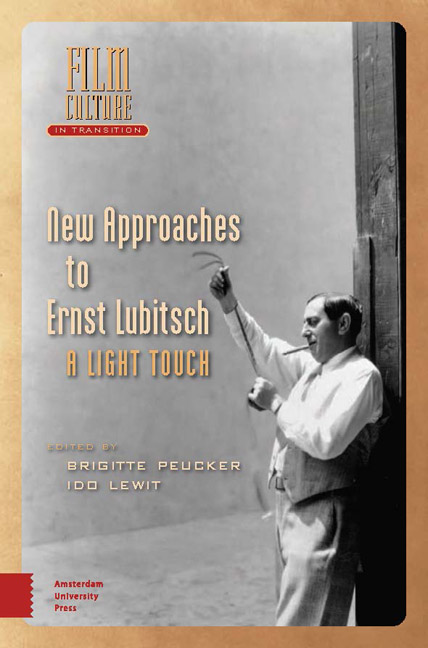3 - Lubitsch Revisits the Schmatta Trade: The Shop Around the Corner
Published online by Cambridge University Press: 16 April 2024
Summary
Abstract
Released in January 1940, when the Jewish-dominated garment trades of Central Europe were already marked for extinction, Lubitsch's The Shop Around the Corner returns to the milieu of his earliest comedy successes in Berlin in 1915. But this film removes all obvious markers of ethnic Jewishness, in keeping with Hollywood's goal of reaching the largest possible audience. Nevertheless, the film can be read as a conscious depiction of Jewish Budapest, given the shop's address, the names of its staff, and that Hungarian Jews were, at that moment, being ostracized through anti-Semitic legislation.
Keywords: Anti-Semitism, Budapest, Jews, retail shops, World War II, comedy
In his earliest comedies, The Firm Gets Married (Die Firma heiratet, Carl Wilhelm, 1914), The Pride of the Firm (Der Stoltz der Firma, Wilhelm, 1914), and Shoe Palace Pinkus (Shuhpalast Pinkus, Lubitsch, 1916), Ernst Lubitsch plays ambitious, Jewish dry goods store clerks hoping to get ahead by courting the boss's daughter, rather than necessarily through hard work. The films were hugely successful, possibly because Lubitsch himself was literally born in the Jewish garment district around East Berlin's Hausvogteiplatz, where his father owned a tailoring shop. At the same time, Lubitsch's broad Jewish humor embarrassed upper-middle class, assimilated Jews, like Lotte Eisner. Apprentices, usually sassy, would continue to populate Lubitsch's subsequent German films as secondary characters to liven up the action, whether in The Doll (Die Puppe, 1919) or One Arabian Night (Sumurun, 1920). Made at the beginning of World War II, when the Jewish-dominated garment trades of Central Europe were already marked for extinction, Lubitsch's The Shop Around the Corner (1940) returns to the milieu of his earliest successes. Yet, like Miklos Laszlo's 1936 play, Illatszertar (Parfumerie), which the film faithfully adapts, The Shop Around the Corner removes all obvious markers of ethnic Jewishness, in keeping with Hollywood's goal of reaching the largest possible audience. Nevertheless, The Shop Around the Corner can be read as a conscious depiction of a “World of Yesterday” in Stefan Zweig's words, given that Hungarian Jews were, at the moment of the film's release, being ostracized through anti-Semitic legislation.
- Type
- Chapter
- Information
- New Approaches to Ernst LubitschA Light Touch, pp. 65 - 82Publisher: Amsterdam University PressPrint publication year: 2024

